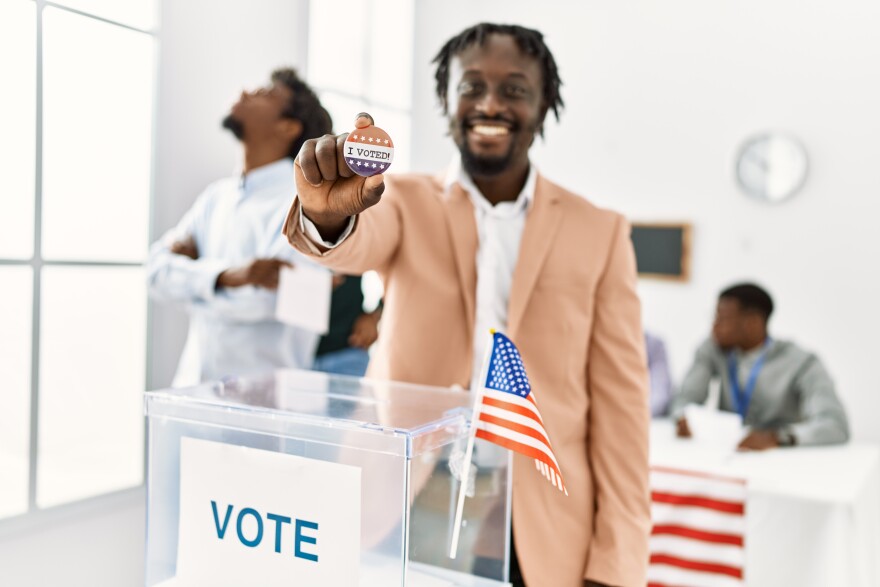This November will be the first presidential election since the Republican-controlled Florida Legislature pushed through a series of laws that reduced access to ballot boxes, complicated voting by mail, and now – as of July 1st – curtailed the scope of grassroots voter registration groups. Florida’s GOP leaders say the measures were passed to eliminate fraud – although the state’s elections supervisors opposed them.
University of Florida student Anja Schwarzbauer started worked with People Power for Florida this year. She’s what they call an “organizing fellow,” helping students register to vote on campus and sometimes at events in Gainesville. Her work includes phone banking, text banking, social media and…
“…helping folks register for their Vote-By-Mail ballots, since you have to re-request them every election cycle now,” she said.
Since the new law relating to groups like People Power went into effect, it’s changed Schwarzbauer’s job a lot.
“And it’s very important to stress the amount of training it takes when the restrictions are put in place because that takes away from our ability to be out and be actively registering voters," she said, "and instead we’re on a Zoom call learning what we need to adjust so we can get back out there.”
She says People Power for Florida is the only group she knows of using paper registration forms. She’s collaborated with other groups on campus, but they use QR codes now.
All this is happening due to a new law that has caused many third-party voter registration organizations – known as 3PVROs – to stop their work. That’s because if they make a misstep, it could cost tens of thousands of dollars in fines. For instance, the new law shortens the deadline for turning in a form from 14 days to 10. The fine is $50 per day for every day a form is late and up to $5,000 if a form arrives after the voter rolls close for a given election. Total fines could be as much as $250,000 per year – vastly more than the budget of a 3PVRO.
In 2020, roughly 60,000 Floridians registered through a third-party group. So far in 2024, about 7,100 have done so.
Orlando Democratic Representative Anna Eskamani describes the state’s enforcement of the new law as “incredibly aggressive.”
“…breathing down the backs of our small grassroots organizations who just want to help people vote,” she said.
She says it’s dispiriting to feel the lack of state support.
“…to the point where we see the effect on the voter registration numbers. People are not getting registered to vote at the same rate as two, three years ago," she said. "And it’s not because people don’t want to vote. It’s because their opportunities to get registered have been stifled by the latest policies out of Tallahassee.”
Data from the Florida Division of Elections shows 14.5 million active registered voters on the state’s rolls at the end of 2022. Close to two years later, that number has dropped 8 percent to roughly 13.4 million as of May 31. All in all, a loss of 1.1 million voters, with Democrats taking the brunt of those losses.
Brad Ashwell, the state director of All Voting is Local, says it’s an unfortunate time for his organization, which is dedicated to expanding the voting rolls.
“…because we’re constantly in a defensive posture, pushing back on these laws that restrict the access to voting and make it harder for people to vote when we would much rather be talking about how to expand access to Vote-By-Mail, expand access to early voting, make sure it’s easier for voters to vote,” he said.
There has been conjecture that the new laws are intended by Republican lawmakers to reduce Democratic registrations. Eskamani of People Power for Florida says that’s not what's important.
“I could speculate on partisanship, but at the end of the day, it doesn’t matter what your party is," she said. "I believe very firmly that the more people that are engaged, the healthier democracy is.”
That said, People Power for Florida tries to reach people who are typically not represented in government – although, Eskamani says, they’re the ones who are affected by government the most.
Copyright 2024 WFSU







